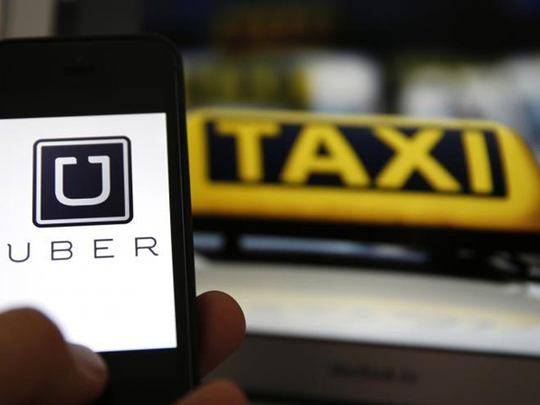
Dubai: Saudi Arabia has slapped several technology firms, including Uber Technologies Inc. and its Dubai-based subsidiary Careem, with tax bills worth tens of millions of dollars, according to people with knowledge the matter.
Uber and Careem face a combined bill worth around $100 million. The claims are related to a dispute over how to calculate the VAT owed over the past few years by gig economy firms versus their individual contractors - and include hefty penalties for late payment. Several of the companies are trying to negotiate with the kingdom's Zakat, Tax and Customs Authority. (The tax authority didn't respond to a request for comment. Uber and Careem both declined to comment.)
The disputes draw Saudi Arabia into a global debate over how to tax the activities of gig or "sharing economy" platforms like Uber, Airbnb and TaskRabbit, which rely on individual drivers, couriers or hosts that often fall below taxation thresholds. The UK has also looked at toughening up tax rules on activities in the sharing economy. But the unexpected costs could spook investors at a time when Saudi Arabia is trying to attract multinational firms to the kingdom and boost foreign investment.
Fetchr – another casualty?
The issue burst into public view this month, when a top investor in Dubai courier app Fetchr - once among the Middle East's most promising startups - said the company was considering filing for liquidation after becoming "insolvent" because of a disputed $100 million tax bill in Saudi Arabia. But the issue is broader than Fetchr and is affecting other tech companies operating in the kingdom.
The taxation question cuts at the heart of the Kingdom's diversification ambitions and the growing pains along the way. Saudi officials have repeatedly pledged to listen closely to the concerns of the private sector. Yet some businessmen complain that unpredictable policy shifts over the past five years make it difficult to plan ahead and calculate risks.
Tax issue
Since the tax was first levied, firms like Uber typically paid it on what they perceived as their own value-add, or the company's commission. That's just a portion of the total amount paid by customers, much of which goes to the drivers who use their platform. But last year, the tax authority began sending companies reassessments that levied tax on the full amount, including the contractors' cuts.
Authorities argue that those individuals fall below the value-added tax threshold and that it would be impractical to collect tax from them directly. But because the bills date back several years and include cumulative penalties, they leave companies on the hook for money they didn't collect.
Some of the companies have tried to seek help from the kingdom's Ministry of Investment and other entities, but were told the problem required a political solution "We are aware of cases like this," the ministry said in a statement to Bloomberg. "The Ministry of Investment is an advocate for investors across government and we are working closely with relevant government bodies to address this issue and collectively work towards a swift and just resolution."
Policy changes outlined under the kingdom's investment strategy, announced last week, are "designed to create a fair and enabling business environment that integrates the needs of local and international investors into government decision-making," the ministry added.








